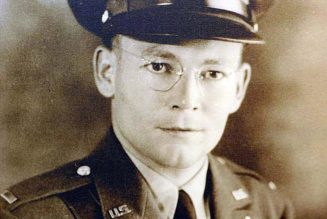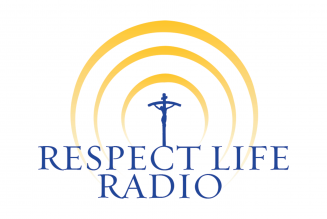
The interview Pope Francis granted to Norah O’Donnell of CBS for 60 Minutes, recorded in April and aired this week, was noteworthy for four clear “Noes,” one implied “No” and one “Yes.”
The clear Noes were regarding: women in holy orders — including deacons, surrogacy, blessings of same-sex couples, and papal abdication.
The implied No was regarding synodality. The Yes was on welcoming migrants, though with important nuances.
Any interview with the Pope must be interpreted carefully, as he prefers a looser and more informal style, a style which does resonate widely and sympathetically. Matthew Bunson explained that well in these pages.
It is important to catch what the Holy Father means, rather than attend only to what he says. For example, while praising women in this interview, Pope Francis states “that the ones who never abandoned Jesus were the women. The men all fled.” Many women also fled. And not “all” the men fled. St. John and Joseph of Arimathea did not.
That being noted, Pope Francis gave some direct and unambiguous answers.
The First No: Women Deacons
Asked whether women could become ordained deacons, Pope Francis said simply, “No.”
The curt reply took O’Donnell aback, so she pressed. Pope Francis spelled it out; deacons receive holy orders, and holy orders is reserved to men alone. End of story.
The CBS interview aired on Pentecost Sunday. Thirty years ago exactly, St. John Paul the Great issued Ordinatio Sacerdotalis, dating it on Pentecost 1994. He declared that the Church “has no authority whatsoever to confer priestly ordination on women and that this judgment is to be definitively held by all the Church’s faithful.”
Pope Francis has repeated many times that the question of priestly ordination for women is closed. But there remain voices who suggest that deacons are different; a deacon is ordained for service, but has no priestly power. A layperson can do everything a deacon does if special permission is granted. So if deacons are not priests, then perhaps holy orders could be somehow divided up; women eligible for the diaconate, but not priesthood or the episcopate.
That was always a difficult argument, as if the sacrament could be divided against itself, but it was could not be instantly dismissed. For example, in some of the Eastern Catholic Churches, married men are eligible to be ordained priests, but not bishops. Might something similar apply to women?
Pope Francis was not sympathetic but indulgent. He set up two study commissions on the matter and it was discussed during the synodal process on synodality for a synodal Church.
Now he has said a clear “No.”
Though hardly surprising, it has proved bitterly disappointing to those who thought the Holy Father was signaling sincere openness in permitting a discussion the outcome of which he had already decided.
The Second No: Surrogacy
Responding to a question about surrogate motherhood, Pope Francis said “in the strictest sense of the term, No, it is not authorized. Sometimes surrogacy has become a business, and that is very bad. It is very bad.”
Earlier this year he called surrogacy “despicable” and proposed an international effort to ban it.
In this interview, Pope Francis adopted a similar approach to that he used on women deacons. He spoke in such a way as to appear sympathetic to considering surrogacy, when he has no intention of entertaining any change of teaching in that regard.
“I would say that in each case the situation should be carefully and clearly considered, consulting medically and then morally as well,” Pope Francis said. “I think there is a general rule in these cases, but you have to go into each case in particular to assess the situation, as long as the moral principle is not skirted. But you are right. I want to tell you that I really liked your expression when you told me, ‘In some cases it is the only chance.’ It shows that you feel these things very deeply. Thank you.”
There is a bit of rhetorical sleight here. If there is a universal moral norm prohibiting surrogate motherhood — as Pope Francis insists — then the answer will be the same in every particular case. Every moral decision is made in the particular though, so each case does need to be “carefully and clearly considered.”
Every moral decision needs to be carefully and clearly considered. But such consideration will not lead to morally acceptable surrogacy, just as years of consideration of women deacons did not lead to that impermissible innovation.
The Third No: Blessings for Same-Sex Couples
O’Donnell addressed the most significant Vatican initiative of the last year.
“Last year you decided to allow Catholic priests to bless same-sex couples,” said O’Donnell. “That’s a big change. Why?”
Even though the document in question contains a section entitled “Blessings of Couples in Irregular Situations and of Couples of the Same Sex,” Pope Francis gave his third No.
“No, what I allowed was not to bless the union,” the Holy Father said. “That cannot be done because that is not the sacrament. I cannot. The Lord made it that way. But to bless each person, Yes. The blessing is for everyone. For everyone. To bless a homosexual-type union, however, goes against the [natural law], against the law of the Church.”
O’Donnell could be excused for thinking instructions on how to bless “couples of the same sex” were about how to bless couples and their union. But Pope Francis said they were not.
The Fourth No: Abdication
Asked about a potential abdication, Pope Francis said that “it had never occurred to him.” Before the death of Pope Benedict XVI, Francis often praised his predecessor’s courage and humility in resigning. But soon after his death he made clear that he regards the office of Peter as ad vitam, for life.
An Implied No: Synodality
Though synodality was not discussed in the interview, the Holy Father’s response on women deacons implied a certain “No” to the synodal process. The October assembly had voted in favor of further discussion of the question, and a few months ago Pope Francis himself even set up a group to study the question (again). But the synodal consultation will not matter.
Phyllis Zagano, a longtime advocate of the female diaconate and a member of the first Vatican study commission on the topic under Francis, told America magazine: “Surely Pope Francis did not intend to shut down several decades of study and ignore the import of Spirit-led discernment, which he has been so keen to emphasize as the modus operandi of the Catholic Church.”
Surely he did. In the same way that he surely ignored the synodal process when he authorized what everyone thought were blessings for same-sex couples. Synodality begins and ends exactly where the Holy Father determines, which is something of a “No” to visions of the synodal process which imagine a more synodal synodality.
Yes to Migrants … But Not Absolutely
“Migrants sometimes suffer a lot. They suffer a lot,” Pope Francis said in response to questions about the Texas border. “That is madness. Sheer madness. To close the border and leave them there, that is madness. The migrant has to be received. Thereafter you see how you are going to deal with him. Maybe you have to send him back, I don’t know, but each case ought to be considered humanely.”
Pope Francis allows himself to be understood as an advocate of unlimited immigration and open borders for migrants. But he is not. He includes, from time to time, significant caveats: “Maybe you have to send him back.”
The Holy Father’s most expansive answer came on his airborne press conference returning from Sweden in 2016.
“In theory, hearts must not be closed to refugees, but those who govern need prudence. They must be very open to receiving refugees, but they also have to calculate how best to settle them, because refugees must not only be accepted, but also integrated. Consequently, if a country has, say, the ability to integrate twenty persons, they should do this. Another country that has greater capacity should do more. But always with an open heart…
A political price can be paid for an imprudent judgement, for accepting more than can be integrated. What is the danger when refugees or migrants — and this applies to everybody — are not integrated? They become a ghetto. A culture that does not develop in relationship with another culture, this is dangerous.”
The Holy Father warns against immigration that exceeds the capacity for integration. He has said it before, and the “maybe send him back” remark is consistent with those statements.
Much of what Pope Francis told O’Donnell was not new, but the interview remains newsworthy. While there were the customary harsh words about conservatives — “suicidal” in this interview — it was proponents of women deacons and synodality who were told firmly, “No.”
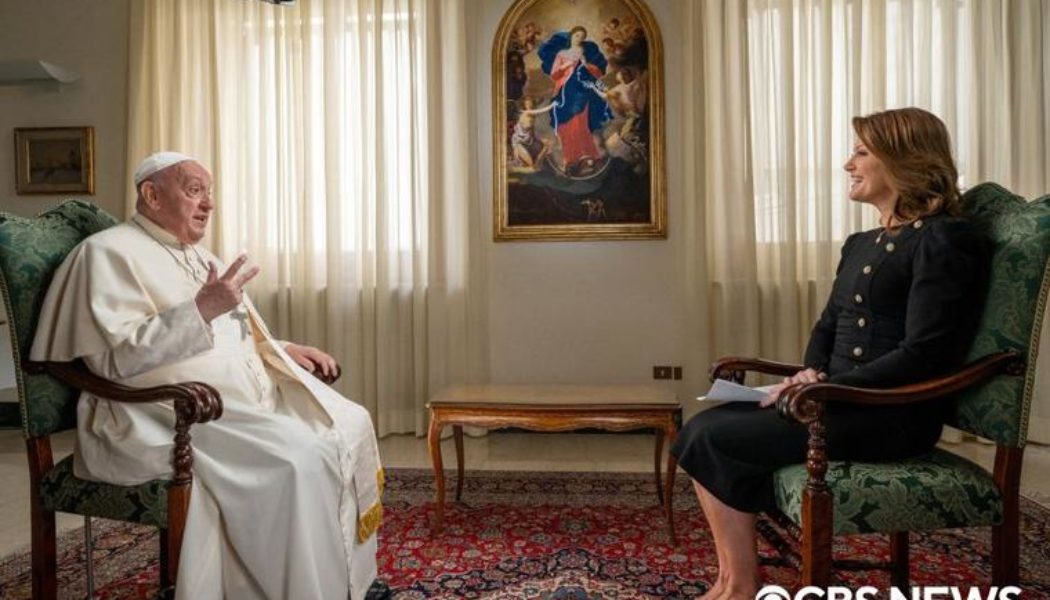
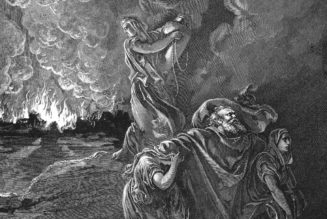
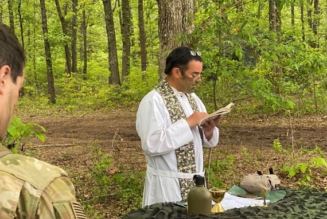
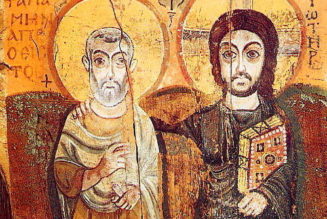
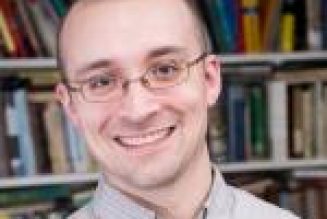

![A Snapshot of Catholicism in China Under Xi Jinping [login required, but it’s free and the article is excellent]…](https://salvationprosperity.net/wp-content/uploads/2024/06/a-snapshot-of-catholicism-in-china-under-xi-jinping-login-required-but-its-free-and-the-article-is-excellent-327x219.jpg)
